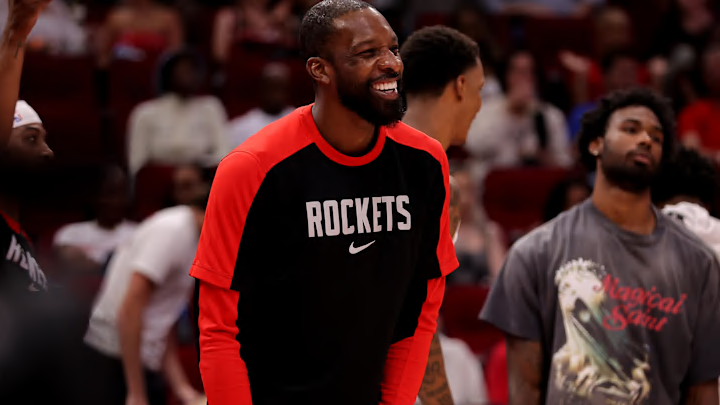Whereas the Golden State Warriors have mishandled a young player whose skillset is questioned when it comes to winning, the Houston Rockets have provided a masterclass in asset management within a similar type of situation.
While Jonathan Kuminga's free agency stalemate continues deep into September, the link between he and Jalen Green remains ever present in terms of their play-style, contracts and how the Warriors could have avoided this situation.
The Rockets screwed the Warriors by signing Jalen Green last October
The Rockets were in a similar situation last offseason where they were debating on how much to fully commit to Green who had shown flashes through his first three years. Instead of giving him a full five year commitment as they did with Alperun Sengun, they gave Green a three-year, $105.3 million deal with a third year player option.
Fast-forward to this offseason and despite a disastrous first-round series (outside Game 2) against the Warriors, the Rockets were still able to flip Green as the centerpiece of a trade for former Warrior and 2x Finals MVP Kevin Durant.
It's hard not to wonder what Golden State could have done this offseason had they extended Kuminga before the October deadline last year. Sure they wouldn't have been able to trade him mid-season given the poison pill restrictions, but they didn't do that anyway and they could have been left with all sorts of possibilities this offseason and have avoided this entire saga.
The entire Green-Kuminga dynamic runs deeper than that though. Once the Rockets paid Green in excess of $30 million per year, as did the Atlanta Hawks with Jalen Johnson, those deals were always going to set a blueprint for what Kuminga might be after.
For anyone that's listened to Kuminga's agent, Aaron Turner, during his various media interviews (including on The Hoop Collective) in the past 48 hours, you've probably heard him refer to Green and Johnson and how they've gone into negotiations with the Warriors without the expectation of getting $30+ million per year like they did.
In other words, Green and Johnson's contracts are being used as a way to point to Kuminga and his camp sacrificing. That they're willing to take less to re-sign, even though they believe Kuminga is at a similar stature to those players.
They might have an argument, particularly when it comes to Green who is a similarly raw, athletic, talented scorer whose production hasn't entirely led to winning at this stage of his career. The issue is that the market is dictating Kuminga is no where near the contract Green got -- even offers from the Phoenix Suns and Sacramento Kings in the event of a sign-and-trade are at less than $25 million per year.
You can't sacrifice something that isn't available, yet it hasn't stopped Green and his deal with the Rockets being brought up by Turner as having some kind of relevance in Kuminga negotiations.
